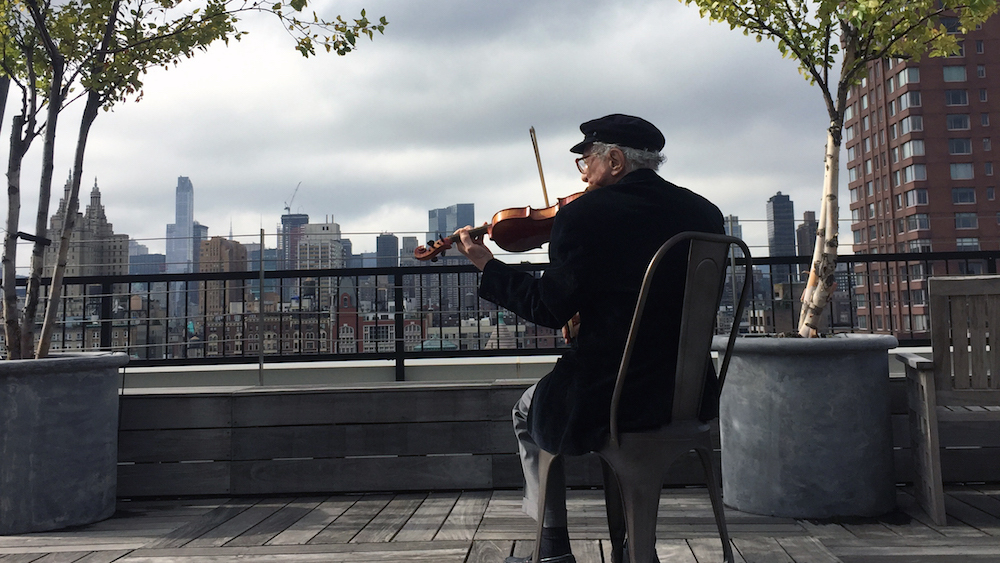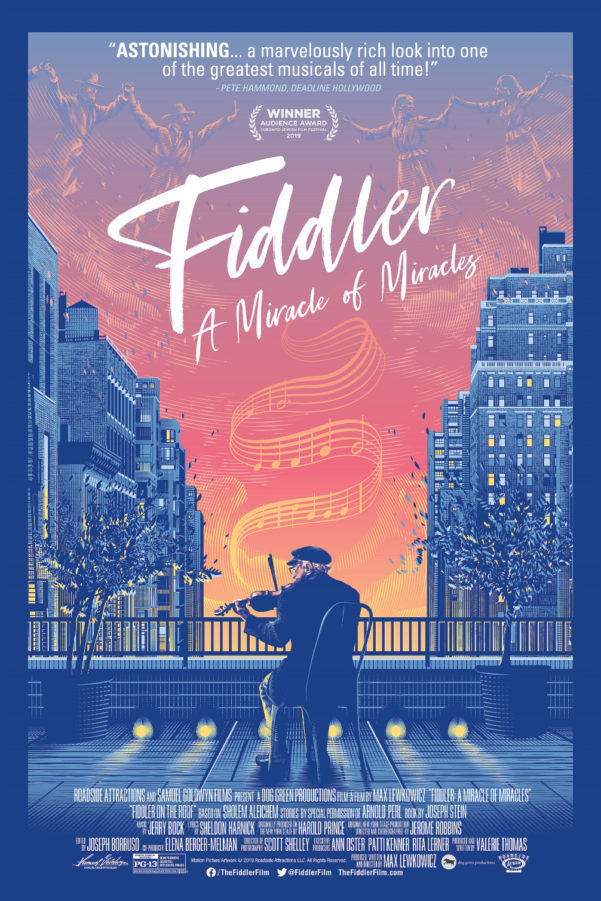Fiddler: A Miracle of Miracles

Everyone in (or into) musicals knows Fiddler on the Roof. “I was in a production of Fiddler in middle school,” remembers Hamilton composer Lin-Manuel Miranda, interviewed in Max Lewkowicz’s new documentary A Miracle of Miracles. “I still remember the dance moves.”
Fiddler succeeded against the odds. As Lewkowicz documents, it was difficult to find a producer for the show (largely because of antisemitism in the theatre industry); when it opened in Detroit, it received a number of negative reviews, which became no more than mixed upon its transfer to Broadway. And yet almost from opening night, queues to see the show stretched around the block. The feature film that swiftly followed was nominated for eight Oscars and won three. Since its first performance, we learn, Fiddler on the Roof has been performed every day somewhere in the world. Its themes – fatherhood, spousal love, religious persecution, the tension between tradition and modernity – have found resonance with cultures across the world.
So, as Tevye might say, who cares? Fiddler: A Miracle of Miracles comes at a moment both timely and inopportune. Documentaries are arguably more popular than they ever have been, but many believe this trend occurs at the expense of quality. Amidst fears that contemporary documentary-making involves little more than selecting a cultural event or figure and loudly proclaiming it/them an icon, what’s the point of a feature about Fiddler?
Lewkowicz’s picture boasts interviews with musical theatre luminaries from Joel Grey to Stephen Sondheim, as well as extended footage of the show’s composer and lyricist Jerry Bock and Sheldon Harnick and legendary producer Hal Prince, who staged the first Broadway production (the film is dedicated to Prince, who died during production). Aside from its impressive cast, the feature works hard to marshal a great deal of research and footage, packing an amazing amount into its 92-minute runtime. A Miracle of Miracles offers a comprehensive and global view of the show, from Tevye’s beginnings in the short stories of Sholem Aleichem in the 1900s to modern productions by Bangkok students and Brooklyn high-schoolers.
And it is a story that, as it goes on, expands to take in an ever-widening circle of creatives, performers and audiences, from myriad walks of life. Identifying the show’s multifaceted appeal, Harnick notes at one point that performances of Fiddler always seem to take place in times of political turbulence. Its inception during the women’s liberation and civil rights movements in the 1960s powerfully influenced the musical’s exploration of women’s rights and the oppression of minority groups by those in power – the significance of which has only multiplied in the intervening years.
There are a hundred things to love about this tour de force – far more than can be detailed in one review. Interviews with Topol and director Norman Jewison (a goy!) reveal tantalising snippets about the filming of the screen version. A wealth of footage from a variety of productions and some delicate hand-drawn animation lend some of Fiddler’s own magic to the proceedings. But ultimately, A Miracle of Miracles is successful because it combines respect for the show’s rich tradition with an eagerness to expand and modify that tradition for the present: exactly like Fiddler itself.
Malin Hay
Fiddler: A Miracle of Miracles is released in select cinemas on 13th December 2019.
Watch the trailer for Fiddler: A Miracle of Miracles here:


























Facebook
Twitter
Instagram
YouTube
RSS